Frugality is not deprivation. At least, not in my opinion. Frugality should be liberating, not restrictive. Frugality should give you options and breathing room and remove the yoke of debt or the stress of living paycheck-to-paycheck. Frugality isn’t meant to punish or induce guilt when you spend money. It’s meant to free you from constant worry about money.

Frugality is a mindset that encourages us to evaluate our money based on the following:
- Am I spending in alignment with my goals?
- Am I using my money towards my highest and best priorities?
- Am I creating a financially stable life that I enjoy living?
- Do I have longterm goals outlined and a financial plan to support and enable these goals?
This month, thousands of you are participating in the January 2020 Uber Frugal Month Group Challenge and a recurrent topic in our private Facebook group is the feeling of guilt when you spend money. I don’t want you to feel guilty, I want you to feel empowered!
Today, I’ve crowdsourced wisdom from Frugalwoods readers on how to create a life of frugal abundance and how to view frugality as a freedom-enhancer, not a limiting, depriving force.
Welcome to my monthly Reader Suggestions feature! Every month I post a question to our Frugalwoods Facebook group and share the best responses here. The questions are topics I’ve received multiple queries on and my hope is that by leveraging the braintrust of Frugalwoods nation, you’ll find helpful advice and insight. Join the Frugalwoods Facebook group to participate in next month’s Reader Suggestions.
The Goals of Money Management
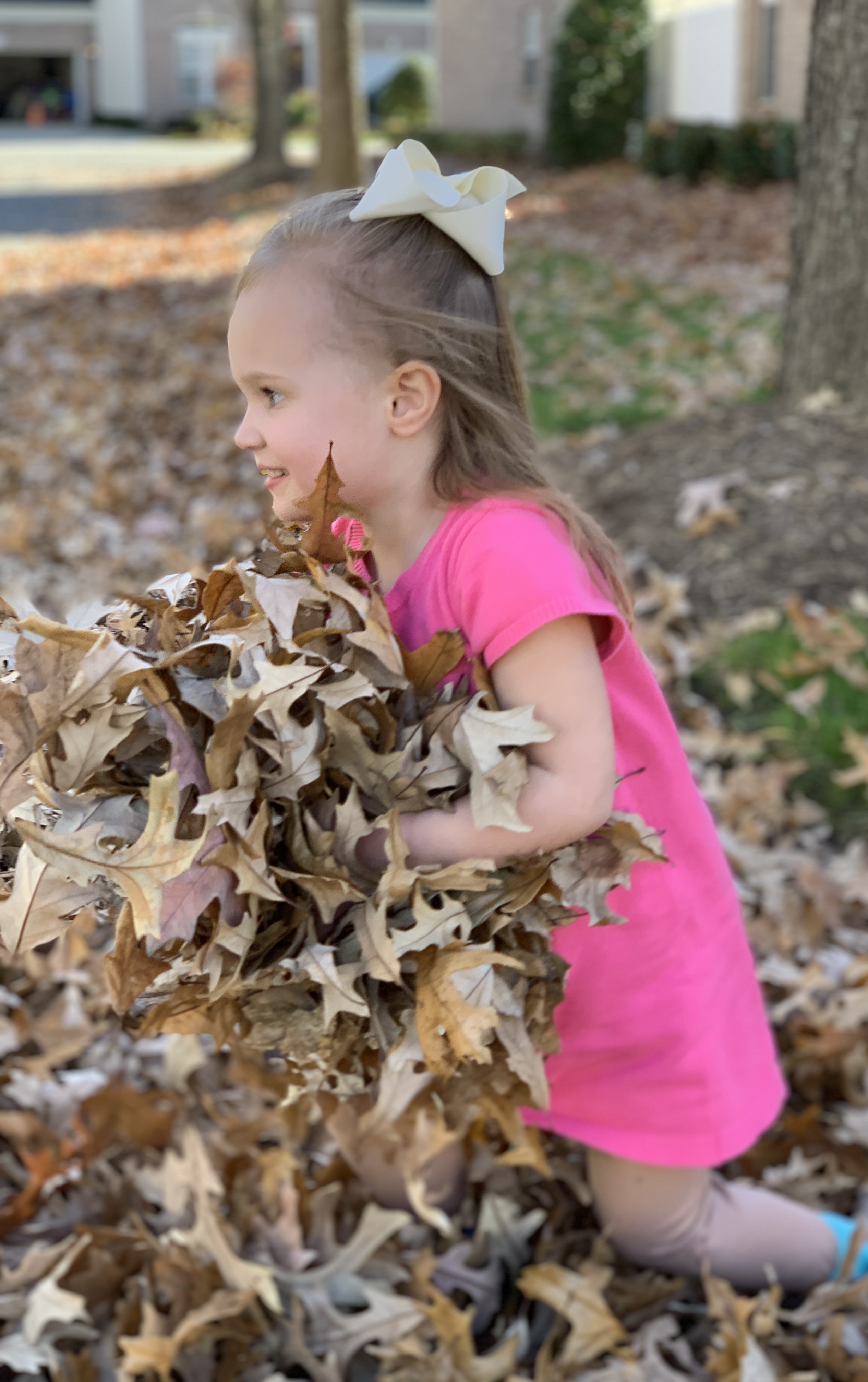
Managing your money isn’t about berating yourself for past mistakes or never spending anything or living a life of monastic stoicism (although if that’s your thing, you do you!).
It’s about being enfranchised to:
- Understand your money: what you earn, what you spend, how much debt you have, where your investments/retirement savings are, and what you need to work on
- Know why you spend money: boredom, habit, necessity, to treat yourself, etc.
- Areas where you can be smarter with your money:
- Are you using a high-interest savings account?
- Are you tracking your spending?
- Are you optimizing expenses and eliminating unnecessary purchases?
- Are you identifying frugal substitutes for expensive items?
- Is your spending (and your earning) allowing you to create the life you want to live? If not, what do you need to do to change that calculation?
These are not the questions of deprivation or of guilt. These are the questions of rational analysis that will, ultimately, lead to being confident, proactive, and at peace with how you use your money.
The Lonely/Cozy Bench: Thoughts from Mrs. FW
I love to visit this bench overlooking our pond when I hike. It’s either at the end or at the beginning of a tough hike, depending on which route I take. And it’s either lonely or cozy, depending on how I choose to think about a comfy bench all by itself in the woods.

This is how frugality works. It’s either deprivation or abundance, depending on how you view it. Used furniture, old clothes, and cooking from scratch is either sad or refreshingly simple–depending on how you view it. Not buying stuff is either restrictive or the path to financial freedom–depending on how you view it.
When we choose to see the world through the lens of what we don’t have, we’re setting ourselves up for deep disappointment.
Because there will always be something we don’t own: a newer car, a bigger house, prettier clothes… and the more we buy, the more we think we need. That’s the insidious hedonic treadmill at work. But if we can instead reframe how we see our lives, there’s the chance we’ll unlock a deeper contentment and a resilience to marketing, to consumerism, and to unhappiness.
More thoughts:
- Deprivation Or Abundance? Turns Out, It’s Your Choice
- Strategic Luxury: The Difference Between Frugality And Miserliness
- Frugality Is Not Deferred Spending
- The Joy That Comes When Less Is Enough
- How Making Luxuries Rare Increases Our Happiness
- 19 Reasons Why Frugality Is The Best Thing That’s Ever Happened To Me
How Frugalwoods Readers Reframe the “Frugality as Deprivation” Narrative and Truly Enjoy Their Frugal Lives
Plan Ahead For When You’ll Spend
Dora said, “I keep a Spending List. I get one item on the list and plan when I’ll get the rest. Knowing that I’ll get what I want eventually takes the edge off of deprivation.”

Lisa said, “I have one or two areas of spending (ie. outdoor sports, travel) that I consider highly related to enjoyment of life and fit with my values. I set an amount or a percentage that I wish to limit my spending to in these areas, but allow myself to be more relaxed about them if I am close to overspending. I allow myself to work on ways to increase my income ( or increase my savings from not spending so much in other areas) so that if I want, I can increase the areas I spend in this area.”
Rebecca wrote, “For us, it’s not so much about simply not spending money, but about deciding what to spend money on before you do. We budget in a few meals out and a new outfit on occasion, or supplies for our hobbies and budget in savings or paying extra on our mortgage. This lets us have things that feel like a treat, but we don’t get to eat out every day, and I don’t get all the new outfits etc. This lets us accomplish more than one goal at a time. To keep frugality sustainable, we plan in a few things each month that could be considered a “splurge” but don’t let us get off track of the bigger goals. Another thing we do is plan for months about big purchases so that we have time to look for good deals and make sure we both love the item. For example, we might say, we want to replace our sofa by April. We talk about the budget we feel comfortable spending and then we look at a ton of places and have fun looking at a bunch of consignment or antique stores and online yard sales and new furniture stores. We can spend the next few months looking around leisurely and having fun with our search. We decided upfront that we’re not in a hurry and agreed on a budget so that whenever we find it, we are ready to get it.”

Jennifer explained, “We still buy the stuff we want. We just think about it a lot more. Same with food. I bought a van vacuum so I could clean mine easier without getting frustrated and paying someone else. This is not a need my regular vacuum would work, but it is a hassle. We thought about it a few days and then bought it. (Thankfully with gift cards but I would have either way) Planning ahead such as packing lunches and snacks, having easy stuff such as pizza for supper available keeps us from fast food runs. The days I cook I make enough for the second day most of the time so I don’t need to cook daily. Basically I don’t feel bad when I spend because I think about it instead of impulse spending. And I save and plan to make everything more frugal so when we do really want something we can get it without worrying.”
M.C. said, “I have started a want/need list. That way I can keep track of upcoming purchases like the next size up in shoes or clothes for the kids, or if they are low on tights for dance, etc. I will also sprinkle in a few nice-to haves on the list for when people ask for birthday/Christmas suggestions. It allows me to be more thoughtful when shopping and not just buy a bunch of cute tops for the kids and then find out they are already swamped with tops and really needed pants.”
Rachael suggests, “Scheduled splurges. My son and I stop at a cheap coffee stand on the way to his counseling appointments. Counseling can be rough, so sweetening it a little is helpful, but it also is a planned treat that I look forward to and don’t spend going out during the rest of the time.”
Find Frugal Substitutes for Expensive Treats
Mallory wrote, “We still struggle with this a little bit, but the biggest difference for us was when I loosened the purse strings on our grocery budget and got super into menu planning. Now our weekend meals are favorites that usually include drinks and an appetizer so we don’t feel like we’re missing out on a restaurant meal. Buying nicer cuts of meat, Costco frozen appetizers, etc. is still way cheaper than eating out. I also think there’s something to the psychology of knowing that we *can,* but we’re choosing not to for our financial goals.”
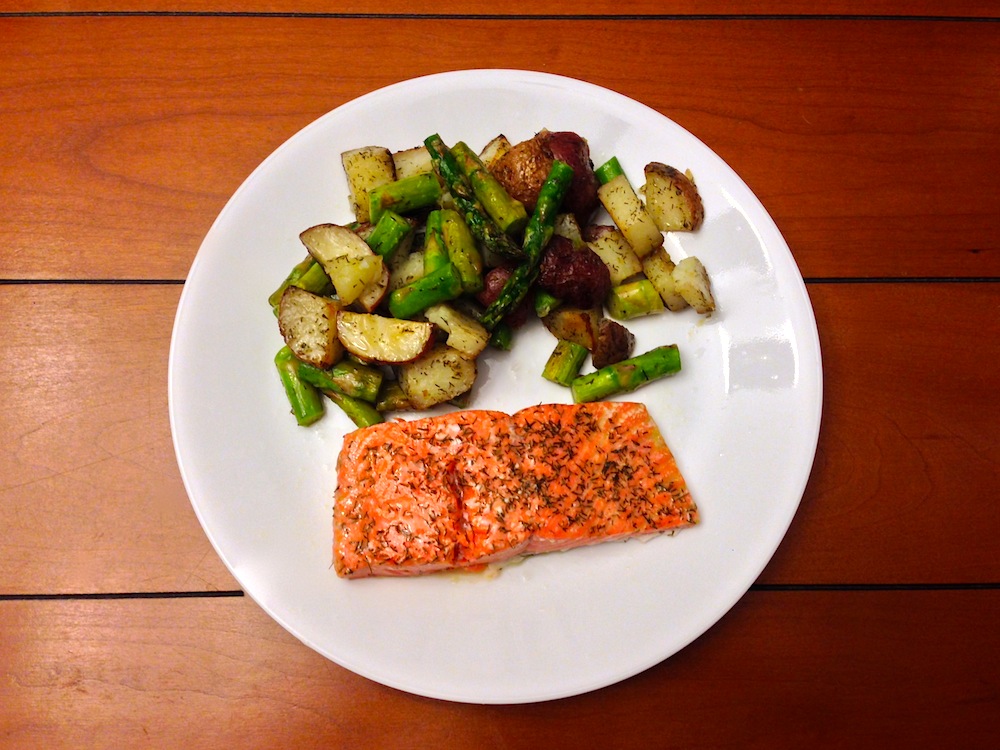
Katie said, “We discussed what our goals and values are. Then we discuss how much we think is reasonable to spend. I mean, it would be nice to not have to prepare lunch and/or dinner multiple times a week, but it doesn’t align with our values: it’s not as good for our bodies and it costs significantly more. I also watch sales and keep a list of things I’d like to buy, but aren’t urgent. That way, when I find a good deal, I do not hesitate to snatch it up, and it also prevents me from buying things we really don’t need. We also find lots of free activities. Through our local library, we can check out an experience pass, once per place/museum once per calendar year. We also have friends who are frugal – so we do cheap and fun things together! We don’t feel like we’re missing out because we’re doing the exact same thing as our friends.”
Tucker said, “I try to remember that I have so much more than I need. One luxuriously frugal thing I love is taking a slow visit to my town’s library and looking through shelves of books! I have a kindle and love getting ebooks from the library’s electronic collection, but there is something about being able to check out a whole stack of books that really speaks to me! I also love not feeling rushed or hurried, which is a part of my life that frugality has really enhanced. I find I spend less time on things that I don’t care about (ex shopping mindlessly or eating out) so I have more time to spend on walks around my neighborhood, reading thick library books and enjoying cups of tea!”
Cyndi shared that, “Making dinner at home can sometimes be more luxurious than eating out – for example we can make as much guacamole for our homemade nachos as we want! 🙂Also it’s important to get rid of the reasons for wanting the treat – when I stop procrastinating on something hard at work, my need for a treat goes away.”
Carolyn wrote, “While I buy generic most of the time, name brand foods are on my grocery list when I know that the generic will not do. I try generics. If they don’t meet my standard of living up to the name brand, I return to the name brand.”
Avoid Comparison (it is, after all, the thief of joy)
Dieta said, “It’s been a slow mental shift, now I don’t desire most of the things I used to spend money on. The only time I feel deprived is when I spend too much time on social media and start comparing my lifestyle to others! And when I do want to ‘splurge’ usually all I need a bar of dark chocolate… ”
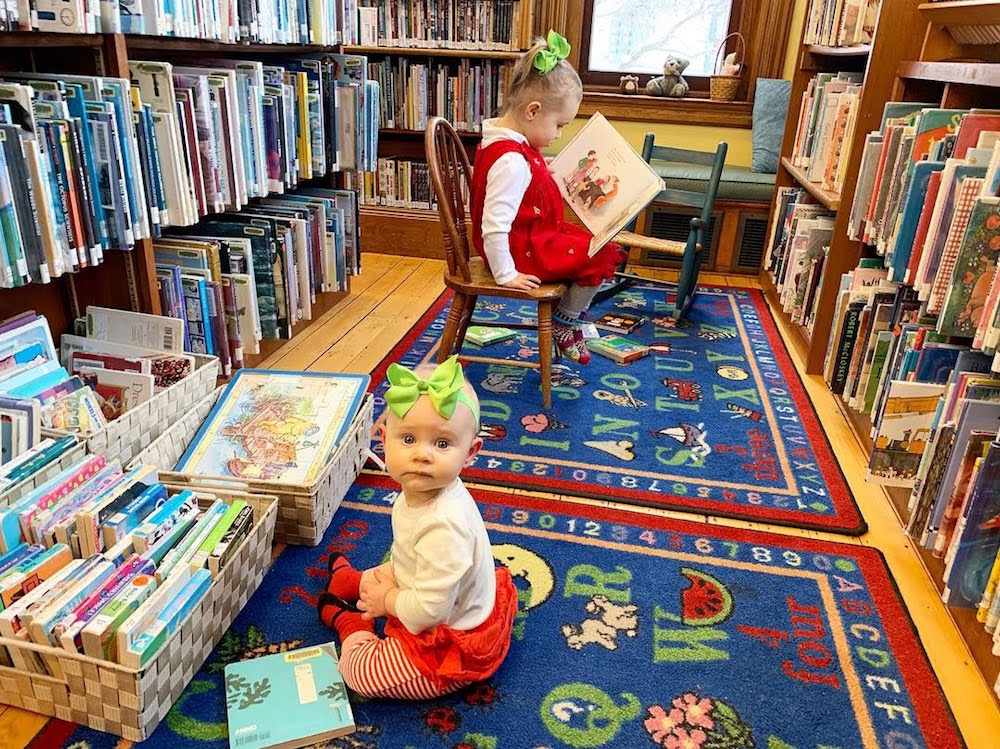
Lisa shared, “The past few years I’ve been reading tons of books about consumerism and the way that corporations manipulate huge chunks of our lives: how to spend our time, what to eat, how to treat ourselves, how to show love to friends and family, what “happiness” is, and more. The more I’ve resisted the status quo, the more I’ve found incredible freedom, a sense of giddiness that I don’t need corporations telling me what to do. For instance, I gave up home Internet, including Netflix, a couple years ago, and now I have so much more time to devote to painting with watercolors, reading good books, and working in the garden. I wouldn’t trade my frugality and freedom for anything!”
Rebecca suggests, “Surround yourself with people with non-consumerist values as much as possible. If you don’t have any Joneses to keep up with, you don’t feel deprivation so much. Obviously you can’t opt out entirely – extended family, co-workers, all these may put pressure on you, but to the extent that you can, cultivate a community of folks who share a priority of connection over stuff.”
Appreciate The Non-Money Benefits of Frugality
Abbie wrote, “My local swap shed is a wonderful social venue to talk with my neighbors. I drop off things I do not need and happily take away a couple things that I like. Many satisfying gardening projects can be done easily with a frugal approach. The rewards are tremendous. Even in the winter, I can enjoy rooting lemon grass stalks from the Asian supermarket in a glass of water. Seed swaps are a great resource. Some public libraries let patrons help themselves to donated seeds. Gardening tools can be found at yard sales. Your composted food scraps will increase your soil fertility and quality.”
Denise said, “I think it’s freeing to never ever shop as a hobby. When I’m out over the weekend and see the crowds, traffic, parking lots around shopping centers, I feel a ton of gratitude that I never developed the desire to just browse and buy.”
Laura likes, “Spending my time differently! I find making time for me to go slower makes me less likely to buy: gadgets, fast food, or whatever spontaneous urge I have.”
Liberation Comes When You Change Your Mindset
Lauren wrote, “For my husband and I, it has been easier to adjust to thoughtful budgeting by adjusting our mindset from what we are losing to what we are gaining. One of the hardest things was greatly limiting our dining out or ordering in. Meal planning and prepping together has offered us more time as a family. We also plan fun meals for the weekends as to give ourselves something to be excited about!”

Kent said, “I ask myself, does what I’m about to receive as a result of my money invested serve me and does it help me do my work to positively elevate humanity (through capitalism). In other words, am I using money to develop myself and advance something much bigger then myself for others? I invest in my health. I invest in travel and experiences. In the past (way past) I had a lavish lifestyle made up of significant possessions. My life is even better…now without collecting possessions. I sold most all of them. My spouse and I have a farm in Vermont. We also spend much of our time living in a small Boston apartment. By most standards we live a great life and don’t want for anything except to keep our health and have lots of freedom and flexibility to bring the best out of us to benefit others.”
Alison wrote, “I try to reframe it as goals and budgets and make sure that my money goals and budgets align with my time goals and budgets. For instance, I love to bake & cook, but have no energy during the week, so I treat myself to a few hours of baking/cooking time on the weekend and feast on the product all week long. I also really like taking continuing education classes at the local community college, but if I over commit I get overwhelmed. I’ve found that 3/year is about right for both the cost and my time. Finding ways to involve other people also helps. One idea is having swaps (clothes, items, or food) is a low cost to spend time with like minded people. Also local Facebook groups really help me balance my budget and desire to hang out with people (I’m in a zero waste group for instance).”
Practice Gratitude

Allison wrote, “I cultivate gratitude. Even a few years ago, when we were in a tight budget spot and living even more frugally than I prefer, we were in relative luxury compared to the majority of the world, and even a great many people here in our own country. I have enough. My needs are met, and then some! I visit the library. I pick up anything I want and feel a delicious sense of abundance in carting home a dozen books and a few DVDs, shopping for free! We buy pretty much whatever we want at the grocery store, especially if it’s an ingredient/whole food. We cook all of our meals, eating out as a treat only. Yes, generally I look for ways to frugalize our meals and not waste money (store brands when it makes sense, etc. Or like, we get one of our fave cheeses at Costco, freeze half of it, and it saves $$). We eat plenty of (delicious) meatless meals, plenty of chicken bought on sale and stuck in the chest freezer… But we will also get the good cheese, the better bread, the lobster for an at home date night.”
Beth said, “If I’m being totally honest there are times I really resent the need to be frugal. Most of the time, though, I find comfort in simplicity by actively practicing gratitude. I make a list of three things I’m grateful for at the end of each day and when I’m having a difficult day I play a game with myself where I mentally start listing the things I’m grateful for to see how long a list I can make.”
Becky said that frugality, “…feels to me, like meeting an old friend again. Let me explain why… 13 years ago we knew we want to retire.. but there was absolutely no way with the bills we had. Then I was diagnosed with stage 4 breast cancer..while fighting for a whole year. I notice we had all this cash after each month. Why? Because we were living a quiet frugal life and it was unbusy, simple, and not spending money to keep up with the Jones. What we learnt from this experience we went on after a year of fighting the cancer and continued living that way we were out of debt in 5 years and have been ever since. So my old friend is back living a simple but quite life at the beach debt free.”
Identify Your Priorities
Allison said, “We determine our priorities individually and as a family and craft our plans for how to fund those. It’s our source of confidence when we make give and take decisions. Ex: We brought peanut butter and jelly sandwiches for lunch and ate them outside the Louvre a few weeks ago. Because our priorities were getting to Paris and to the freakin Louvre and what we had for lunch was not a priority for us. (Don’t worry. We did splurge on a few delicious French dinners!). The key to this is realizing not everything can be a priority and identifying what is a big deal to you. Going all in on that and letting go of everything else that doesn’t matter to us is necessary for contended financial success. It’s also been a big deal to find friends with similar spending priorities or ones willing to dabble in our frugal eating in/game night/movie night ways.”

Ruth said, “It is about priorities. We aren’t depriving ourselves, we are working very hard to spend money only on things that are meaningful to us. So, if we *really* want something, we have the money and didn’t just spend it on random stuff that we don’t care about.”
Kim suggests, “Understand what matters to you and will make you frustrated if you go without. I don’t care about a high end cell phone, but I do want a reasonably fast recent laptop. I don’t need expensive clothes but I like having enough work shirts that I can go over a week without ironing. Be aware of how with creativity an overspend in one category can be offset by an economy in another – having flexibility in the use of your overall budget feels empowering.”
KT shared, “This was a Uber Frugal Month suggestion: keep a note in your wallet/taped to your credit card(s) to remind you of your frugal end goal. I live in an apartment in NYC and don’t have my own private outdoor space. Every time I go on vacation, I take my coffee outside on the vacation house patio/porch/balcony, in the sunshine, and my day has the most incredible start. So I have a note taped to my cards that says: AM coffee on your patio. I’m saving for a down payment for a place that has private outdoor space. Every time I go to swipe my card, I’m reminded about my future, and what I want, and how my current frugality isn’t about deprivation but rather building a luxurious life that fills me with excitement. The only downside is the paper note gets stuck in the pockets of my wallet.”

Holly shared, “We are intentional with where we direct our money – by purchasing experiences (vacations, trips, memberships, sports activities for our kids) and things that align with our values (organic foods, humanely raised meats, toxin free body products or laundry soaps) we enrich our life instead of depriving ourselves. We enjoy saving money but when we do spend, it’s done intentionally and on things that truly add value to our lives.”
Rebecca says to, “Be very clear on why you want to be frugal. If it is because you feel you are supposed to be, if it comes from a place of fear or competition, it will be a trap just like spending is. If you have a clear purpose, frugality just becomes a tool to the life you want, and you can show some self-compassion on your journey when you (inevitably) ‘mess up.'”
Use a Budget/Expense-Tracking App or Program
Mary wrote, “I use YNAB and that is the whole premise behind their method. Starts with deciding where every dollar you get will go when and only when you actually have it in hand. When you first start, it is an educated guess, but then you track every expenditure so you know exactly where your money is going, and adjust your budget accordingly. They also emphasize that you need to plan for things that only come up occasionally as well as unexpected expenses… It is all about setting your priorities and choosing what is most important to you. I thought I had a good handle on my finances, but YNAB has literally changed my life.”
Emma and Ingunn both recommend the book, “The Art of Frugal Hedonism: A Guide to Spending Less While Enjoying Everything More.” (affiliate link)
Make Frugality a Hobby and a Game
Laurie said her solution is to, “…make it fun. It is a challenge to only spend a certain amount on food or other utilities. We see how low we can get them down and try to think of creative ways to still have what we want just in different ways. Want Chinese food well let’s find recipes to make it at home. Lower electric bill, we live like the settlers did and cook outside and use lanterns for a weekend. We have so much fun trying to out do each other by finding great deals on things we need. We don’t see it as deprivation it is about stretching what we have and being creative.”
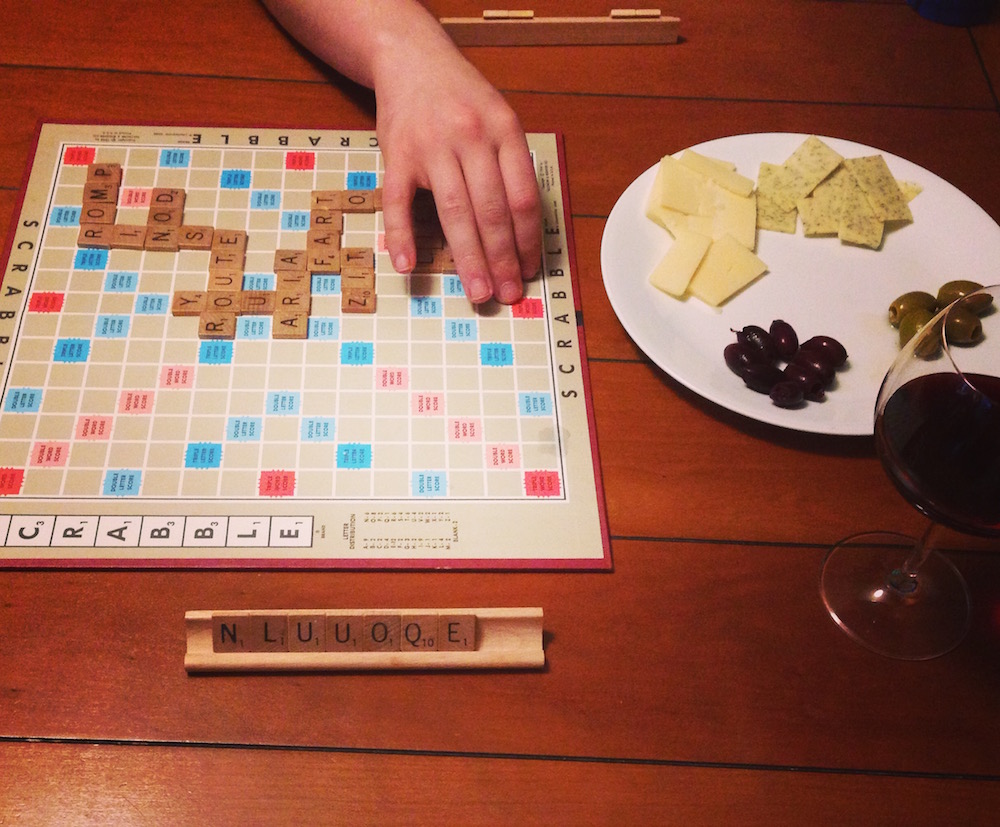
Kristen wrote, “Frugality has become freeing to me after approaching it as a game. I’ve found a number of really neat items for FREE on local social media listing sites. They may not be exactly the style, color, form, etc I’d choose were I to buy from a store, but they’re close enough and I get a healthy sense of satisfaction from my free finds. I think this increases creativity as well. I’m finding new ways to repurpose items I wouldn’t have thought of if I weren’t trying to be frugal. It’s actually fun…
If you can be patient, something will come along. We lived without chairs for our dining table for 3 months. No big deal for us as we ate at the kitchen counter. We got 6 free, nice wood chairs that perfectly match our table 2 weeks ago! It’s a huge score when the timing works and I find these treasures. It’s luxurious to me from the aspect that I’m not a slave to the marketers of America. I do NOT need to drop 50k on a brand new car. I do NOT need to replace my decor every few years to keep up with the latest style. What IS a luxury is being able to afford experiences vs stuff. I can go for a hike and free my mind for a few hours. That’s a luxury in this busy world! I can go for a bike ride, a run, a walk, go ski, snowshoe… there are so many things that my body physically allows me to do and that is a luxury. Not everyone can do that. Not everyone lives in an area they love that offers ample experiences to free their mind. Working more to make more money for things I don’t need? I see nothing luxurious about that!”
Lea said, “We try to find free/inexpensive hobbies or hobbies that coincide with actual needs. For example we enjoy biking (basically free the way we do it.) Also I enjoy cooking, so while we might buy some nicer ingredients occasionally if I want to have some fun in the kitchen, we save money by not going out to eat, and overall my hobby satisfies a need. My husband also enjoys building/repurposing things so rather than buying new furniture we buy older, cheaper pieces and he refinishes them to work for us. Our frugality allows us to enjoy our hobbies, become better at them, and utilize our creativity so we can create things that perfectly suit our needs.”
Abbie wrote, “I like the adventure of seeing what I will discover on the reduced produce shelf of the supermarket. I scored recently with a tray of 3 very ripe papayas for $49 cents and a bag of lemons with cosmetic blemishes for a dollar. I have tried unusual vegetables for a low cost with these fun searches. I am a passionate about reducing food waste and am very willing to cut away blemished parts for my compost pile. Sometimes I am annoyed by what is lingering in my pantry. There are gifts of preserved fruits, canned vegetables, and tins of meats that have been collecting dust. I like the challenge of Googling this odd collection of ingredients and see what recipes I can come up with to use them. These cooking projects are a way to declutter and be creative at the same time.”
Know the True Cost of Your Stuff

Erica wrote, “I used to feel like I was missing out a bit until we bought a boat (30 years old, paid with cash). However, maintenance on the boat costs a lot of money! We do enjoy it, but that drove home a lesson for me. I like the simple life in my terms. I keep life simple by being frugal and doing what pleases me. What stops me from buying a lot of things is that I don’t want to spend the time maintaining them, fixing them, cleaning them, or having to upgrade all the time. When I purchase something now, it has to be something I want to spend time on or with. Otherwise, it isn’t worth it to me. I find a lot of possessions and “toys” are not worth it because of that. It takes away from my peace and simple life. I feel I live a good life and I would rather spend it with people versus things.”
Nancy shared, “I think realizing that even if we could buy everything, we’re not truly capable of enjoying everything. And also after a few good declutters, realizing that WE paid money for this stuff, and maybe we’d be better off buying less, and only buying what we really want, not because it’s a good deal, or in the heat of the moment.”

Maddy said, “I think understanding trade-offs is invaluable with frugality. Recognizing that spending money on X will inevitably be trading away another opportunity can help you become a valuist- someone who chooses to spend money only on things of value that really make a difference in their life. I realized that spending all our excess money on things we kind of enjoyed took away the opportunity for us to quit our jobs sooner. I then recognized that I valued my freedom more than the stuff I only cared about because others did. This is where goals come into play- for us it’s quitting sooner and having more options. When we have these goals they remind us about the trade offs we’re making which helps combat deprivation. If you’re not working towards a goal, deprivation is more likely to set in and make you want to give up.”
Summary
Getting to a place of seeing frugality as abundance, and not deprivation, can be as abstract as changing your mindset or as concrete as making a nice dinner at home on Saturday night instead of going to a restaurant. I personally use–and rely on–both of these approaches. I need the intellectual considerations of my privilege, of my profound good fortune and I also need to occasionally buy a nice bottle of wine to enjoy at home, knowing I’m spending less than I would at a bar, but still feeling indulgent. It’s the combination of these two things–a changed mindset about consumerism and the utilization of “frugal substitution”–that makes longterm frugality not just possible, but desirable, sustainable, and ultimately, liberating. Finally, finding benefits to your frugality that outstrip the money saved makes it all the more worthwhile.



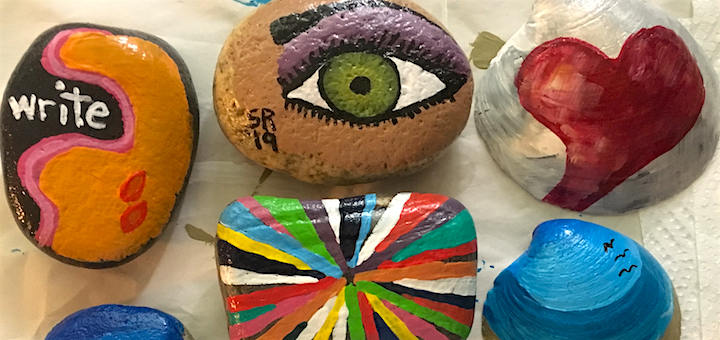




One important distinction I make is being frugal vs. cheap… Cheapskates try to find the lowest price tag on everything. As a result, they often buy goods that don’t last long. Their sole focus on price can end up costing more in time and money. A cheap mindset can also ruin relationships.
That’s why it’s vital to focus on both the price and value. A frugal mindset will help maximize the value you get in life over the long run. And it’s important to note there’s vital balancing act between spending and saving.
so true, and quite often being cheap ties in with being miserly, and very soon the person gets a reputation for always trying to get out of paying their way and being ungenerous, which is horrid.
Being frugal means being careful and not wasteful, which given the current environment and economic climate, can only ever be seen as a very good thing!
Very well said!
A friend’s grandfather had a saying “I’m not rich enough to be cheap”. In other words buy quality once and you won’t have to be replacing it numerous times.
I loved KT’s comment about putting post-it notes on the credit cards! One suggestion I have is to use a sticker or label maker — same message but less post-it note mess to sort through 🙂
My credit card lets you customize a photo on the entire card for free – a picture of that coffee on a patio would be great motivation!
Discovering and devouring this blog helped me re-embrace my frugal roots, and I’ve discovered just how luxurious frugality is. Really, what is more luxurious than not having to worry about paying bills and being able to retire early?! I still go out to eat sometimes, buy nice clothing, travel, and belong to a nice gym, but I’ve reduced all the extraneous, frivolous spending. And I don’t miss any of it! If I really want to go out to eat, I go. But I don’t often want to go because I’m a good cook. I still travel, but I can do it inexpensively and through some travel hacking. I live a great life!
I just want to say this is a GREAT article and one I intend to bookmark and come back to repeatedly – thank you for putting it together, and thanks to those readers who weighed in with such great perspectives! And your photographs are simply beautiful; it relaxes me just to see the pictures, I can only imagine how relaxing it is to see it live and on your property! Namaste.
Frugality is good for the environment! It’s depressing to see all the packaging that is thrown away when constantly buying things. Also trying to make things last, taking care of things so you don’t need to throw them away keeps things out of the landfill. (I know this is a bit off topic but it is motivating for me)
Love reading all these stories. Anyone know of people who live like this in Spain? Apparently there’s a full fledged FIRE community here but they require applications and I’m nowhere near retirement yet. I’m just looking for like minded friends to have potluck dinners with! 🙂
Hi Dina! We relocated to Spain last year to live a frugal FI-based life. We love it! You can follow our experiences on http://www.palmaonfire.com. What do you mean by applications?
Nice! I will follow your blog. 🙂 By applications I mean to join you had to submit a video and fill out a form and even join a waiting list… It seems they want to keep the community small. There may be other FIRE communities I don’t know about!
We definitely applied this approach as a general thing over our long summer holiday period (yes, which coincides with the great festival of spending known as Christmas). We decided quite well in advance what we would be giving the children and then looked for the best second-hand deal / most value (it was a much-wanted gaming console and bits that go with it). When we went away for a few days, we ate at home most days at our stunning, right-on-the-beach self-catering home, but did enjoy a great fish and chips supper at a local eatery. We even brought our own ice creams from a factory outlet and enjoyed as much ice cream as anyone could possibly want for a fraction of the price.
We’ve also made conscious efforts to focus on the things that provide us value and to trim away the bits that don’t really. For example, I love getting my hair cut and highlighted nicely. I have difficult hair and it makes me look and feel much better if it’s done well by someone who knows what they are doing. I loved my hair stylist, had been with them for ages, but the price was… creeping up. A lot. Anyway. I spoke to friends in my local area whose hair is similar to mine and who always look great and found a hairdresser who has a little home-based salon and does amazing things for about 30% less. So I’ve made the switch and am delighted. I’m sad to say goodbye to my former stylist, but happy with the money left over.
Same for a weekly exercise class that was frequently being cancelled at little notice for all kinds of… sometimes trivial reasons. The instructor is a friend and she’s going through hard stuff at the moment, but eventually it was getting annoying to not get my class / have wasted the money (there was sometimes the offer of a make-up class but this was regularly at difficult times for me). It wasn’t a huge sum of money, but why spend money for something that is giving very little value? My main joy from that came from the social side, so… I am starting a monthly book club instead, where it’s strictly secondhand books, snacks and gossip and wine and we take it in turns to host! This way I still get to see and be supportive to my dear instructor friend AND see my other buddies… but at a fraction of the price. Win!
And on and on the list goes, and it’s a work in progress always.
Frugalwoods has really encouraged this line of thinking, of consciously examining spending in the spirit of generosity and fun, but also not being wasteful or silly, frittering money on trivial, forgettable things.
I agree that it’s a mindset shift on whether you think you are deprived of something or have gratitude for the abundance of what you already have. I have a deeper question that may warrant its own post but how do you square this life philosophy with investing in the market where the top companies are primarily about encouraging consumerism? I know you can selectively pick stocks of companies you value, but going with the straightforward index fund approach, the companies at the top are in the business of selling products to consumers.
It doesn’t fully answer your question (which is a super valid one and I definitely plan on thinking about it more!), but personally I chose the “Socialy Responsible Investing” portfolio offered by WealthSimple. It doesn’t take the capitalism out of investing in the market, but it does put my money in companies that are a little less horrible. It has slightly higher fees than the straight EFT option, but still lower than an actively managed fund and it’s a trade off I’m willing to accept because it’s important to me!
Margaret said it well: Frugality is good for the environment!
I wholeheartedly agree. I feel blessed; there is food in the pantry, the air is good to breathe, I have delicious well water, a wood stove that keeps me warm and I can cook on it, too. I love the smell of clothes when I bring them in after drying on the clothesline; it makes me feel rich. The sheets last so much longer, too. It makes me feel rich, and I know I am living well as compared to so many in our world.
My sister says that at our age, consumables and experiences are the best gifts (a nice bottle of wine, a delicious cheese, a fun experience somewhere). I take out library passes to various museums a few times a year – have fun and learn something, too.
Awesome😃
Travel is very important to us. We are in our early to mid 60s, retired and on a fixed income, but because we are frugal we live quite comfortably without touching our retirement funds. We contribute to our IRAs each year. We also put $600 per month into a “travel fund,” the sole purpose of which is to have money to travel without agonizing about whether we can afford it. These funds may only be used for travel. We usually go to Florida in the winter, Minnesota in early summer and spend the month of November in Mexico. These are our set trips, but we also travel to other destinations when we like. We have no credit card debt, but we charge EVERYTHING on our Chase Sapphire VISA and earn enough points for our Mexico tickets with points to spare. Because we do want to travel, we eat at home most of the time, buy clothes second-hand and walk or ride bikes to save money in gas. This is our lifestyle and we are so happy we agree on how to use our money.
I love frugality and the way it dovetails nicely with simplicity. We’ve been living frugally for years now, we had to. Kids in diapers, kids in college, that’s what often happens with a reconstituted family (kinda sounds likefrozen o.j. when I type that) Being frugal meant we were still able to vacation we just camped, we traveled to Disney once but stopped at KOA’s instead of hotels. Both of our kids are wonderful cooks because we stressed nice ingredients and family time at the stove. When my parents passed away I inherited the family home, now we have that one in Michigan and our Texas home. Frugality allowed us to pay the mortgage off early, and now we are retired and enjoy the best seasons in each home. I’m really enjoying everyone’s input on this!
Allison’s words resonated with me- “I have enough. My needs are met, and then some!” So true, here in the States many of us have such an abundance! Be frugal for long term goals, appreciate more, and give back. Thank you Mrs. Frugalwoods for these inspiring words, and for the awesome network of like-minded individuals!
I love this article! Thank you for posting it. My husband left a very lucrative high-stress job about 10 years ago to start a performance business he’d dreamed of but which is not particularly well-paying. I adopted frugality as a necessity then, and we cut way back on expenses. Today, the relaxed happy relationship we share and the amazing life we have built together is far better than anything we bought during that past stressful crazy time. Cutting back financially was not always easy but today it’s just how we live and we are 100% content with it. We do have savings from his past career, which should keep us comfortable into old age as long as we stay frugally content. We have tons of fun, and we’ve managed to afford a camper (small travel trailer) which is a great joy as we both love being outdoors. In general, I have zero complaints about living a frugal lifestyle. It’s been good for our souls.
All money is meant to be spent, just a matter of when. My grandmother equated frugal with cheap, she couldn’t have been more wrong.
So what if any one of us splurges the rare occasion (aka unplanned, not budgeted – and I hate the word budget FWIW). Even if it were to put a crimp in one’s budget, what is done is done. Get back on track if finances are that tight. If not, don’t beat yourself up.
This was a wonderful post and I loved reading everyone’s suggestions. The members of this community are living such rich, thoughtful lives. But what I enjoyed the most is seeing the photos of your girls, my favorite of which is the picture of them in the library. They are adorable!
An attitude of gratitude is a great start.
https://www.happierhuman.com/benefits-of-gratitude/
By being grateful for what you have versus being envious, always wanting more, never satisfied, leads to being very unhappy. Possessions cannot make you happy, keeping up with the idea that you must have the latest technology, a new car and keeping up with the latest fashions leave a void. We focus on benefit of what our purchases are. Investing in our garden of fruit trees, berry bushes and building raised beds pay off year after year. We rarely eat out, but buy single ingredients and prepare delicious meals that include vegetables and fruits both in season as well as what we can and freeze. It is far more convenient and economical.
Buying prepared foods is more expensive, less nutritious and generates more waste, very environmentally unfriendly.We generate very little trash and the scraps from food preparation we add to the compost pile. The other benefit is that we do not use petroleum based fertilizer or pesticides in our garden. We don’t poison our food or the soil. Organic gardening is quite an interesting hobby that is healthy as well. We pay our bills monthly, never carrying a balance on our credit cards, and we get cash back rewards on the cards. And because of that, we have a low mortgage interest rate and high credit score.
We insource where we can doing yard work, home maintenance, changing oil, and other vehicle/equipment maintenance within our capabilities.
Getting the proper tools to do the job and buying ones that are high quality is important. I have wrenches and other tools that are decades old, pay for themselves many times over and still do the job. I sharpen knives, shears, mower blades, chainsaw chains, axes, etc. maintenance of tools keeps them in good working condition.
There are times that we do spend, such as trips to visit family and friends and upgrades to our home of new windows, doors, a new roof and appliances that need replacement. But we have funds available for those times versus having to do installment plans. It is a matter of priorities. We consolidate trips for errands to reduce the mileage on our vehicles. We figure 55 cents per mile transportation costs as added to any purchases as wear items like brakes, tires, belts and more major repairs over time, and eventually it becomes non cost effective to repair, so there are replacement costs.
This completely! As we’re getting into middle life and people are deeper into their careers and life trajectories, it’s becoming so obvious how relentless endlessly wanting ”more” and ”to be striving” (for the next thing) becomes. There is absolutely nothing wrong with ambition, with wanting a nice life at all. It’s not wrong to love – say – great clothes and a good life – the question becomes, at what cost? If you happen to earn a lot and are happy spending your discretionary income on, say, cool cars or fancy holidays or wtf-ever, that is great. You are living your best life. When it becomes a vicious cycle of being mortgage to the hilt, with no breathing room or any possibility of saving, of constantly eyeing out what The Jones’s have and aspiring to have what they have… it’s stressful and pointless.
I now see several people like this, so dazzled by glitz that they never stop to enjoy the awesome stuff they have already worked so hard for. It must be so tiring. So, so tiring.
I saw a Ted Talk that I believe was called “Enough “. That one word has helped me on my frugal journey. When I’m making breakfast, for example, I think, “Do I really need 2 slices of toast with my eggs, or is 1 enough?”
Determining priorities is very important for me. Fancy meals out are not my thing. On a recent trip to NYC, we prioritized a central city hotel to save travel time & have a place to rest mid-day. We ate at delis & brought some snacks from home. I think we enjoyed our dinner out at a grilled cheese restaurant more than any 5* restaurant!
Don’t buy ‘used clothes’, look for ‘vintage fashion’ ! (semantics makes a difference! last year’s fashion is ‘vintage’ in toddler or dog years)
“… Alternately, there’s always vintage, which boasts sustainability, a less contrived aesthetic and the bonus of human connection. “Each item has a history and former owners who made memories in them before passing them along,” said Ms. Irving, who prefers vintage to prematurely destroyed clothing for its authenticity.” from “Distressed Clothing: Offensive or Just Fashion?” in The Wall Street Journal, 1/24/20
I love reading everyone’s ideas. I follow the barefoot method of allowing yourself 10% of your income to spend on what ever you like. It frees me of guilt and each payday i can choose to save it for something bigger or spend it on little joys like eating out. My own blog https:stepping–back.blogspot.com covers alot of the ways that i spend and don’t spend my money.
So many great suggestions – I really appreciate seeing so many ideas I could put to use!